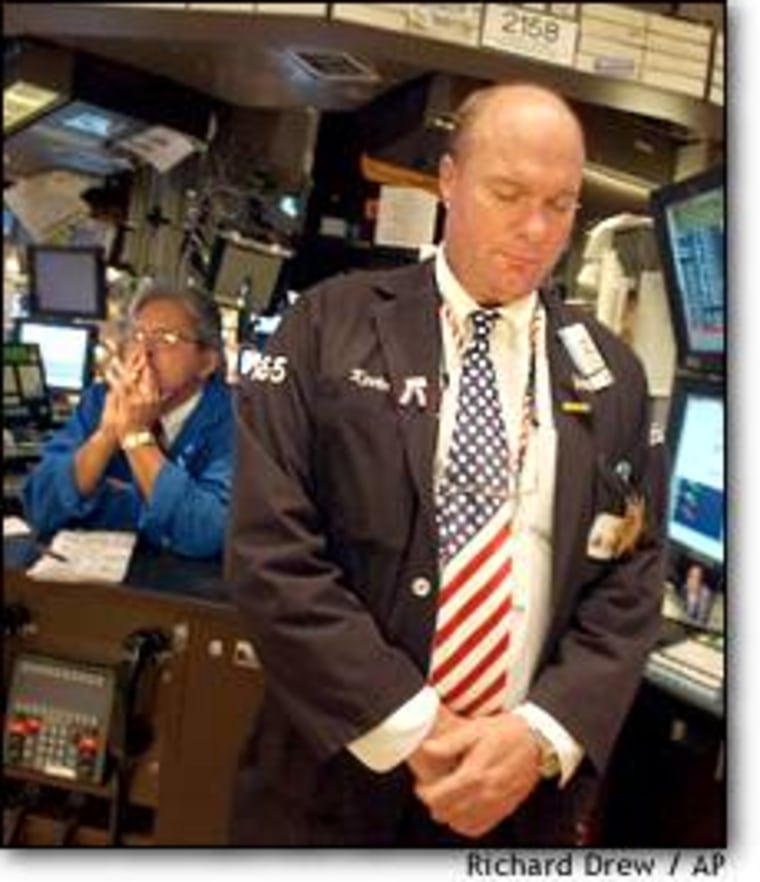Stronger-than-expected reports on U.S. manufacturing and construction activity drove the broader stock market to a fresh 17-month high Monday and boosted investors’ hopes that the nation’s economic recovery is on target.
After climbing the open, stocks got a lift in early trading from the Institute for Supply Management, also known as the ISM, which said its monthly report on the U.S. manufacturing sector showed a better-than-expected gain of 57.0 in October, rising to its highest level since January 2000 (a reading above 50 indicates expansion).
Separately, the government said U.S. construction spending surged 1.3 percent in September to an all-time monthly high, reflecting ongoing housing-sector strength.
“This is a spectacular report,” said Ian Shepherdson, chief U.S. economist at High Frequency Economics, referring to the ISM data. “Inventories remain soft,” he continued. “But this presumably means companies are struggling to keep up with demand, and augurs well for future output and employment.”
Investors reacted positively to both sets of data.
At its session peak, the Dow Jones industrial average was up 95 points, hitting a fresh 17-month high. It closed Monday up about 57 points. The Standard & Poor’s 500-stock index, a broad market gauge, also hit a 17-month high and closed Monday’s session up around 8 points.
The Nasdaq Composite index, full of technology stocks rallied some 35 points, or 1.8 percent, and closed near a 21-month high, buoyed by new data from the Semiconductor Industry Association, a trade group for computer chip makers, that showed worldwide semiconductor sales in the third quarter rose 13.7 percent from the prior quarter and 17.5 percent from a year ago.
The data drove the Philadelphia Stock Exchange’s semiconductor index up 4 percent. Technology issues and financials led the Dow industrials higher. Intel gained 3 percent and Citigroup rose 2 percent.
In addition to the upbeat ISM number, Larry Wachtel, market analyst at Prudential Securities, attributed the market’s positive bias to a realization on the part of investors that the stock market is likely to remain buoyant until the end of the year.
It’s rare for the market to fade in the final two months of the year, Wachtel said. “The data are likely to be good until the end of 2003, so we’re rolling along on momentum.”
October jobs data in focus
Monday’s stronger-than-expected ISM data came on the heels of a remarkably strong report on U.S. economic growth. Last Thursday’s gross domestic product report showed the economy grew at its fastest pace in nearly two decades in the third-quarter.
With third-quarter earnings season drawing to a close, Wall Street’s attention is firmly fixed on the economic outlook. Stock prices are up considerably from their early-March lows, and now some market analysts think further confirmation that the economy is strengthening is required before stocks can move significantly higher.
This Friday’s October payrolls report may offer the economic evidence Wall Street craves.
Even as the U.S. economy has strengthened in recent months, the labor market has lagged and it is widely seen as the missing ingredient in a sustainable economic recovery. Early forecasts are for a rise in October payrolls of 50,000, according to Reuters, after a surprise gain of 57,000 in September, the first increase in payrolls since January.
On Friday, Wall Street closed the month of October with healthy gains. The S&P 500 index climbed to its highest level in 17 months and the Dow industrials wrapped up the month with a gain of 5.7 percent, their largest monthly rise since April. The Nasdaq Composite jumped 8.1 percent.
In Monday’s third-quarter earnings results, Israel’s Teva Pharmaceutical Industries reported a better-than-expected third-quarter profit and raised its full-year earnings guidance. The firm’s U.S.-trade shares rose 2 percent.
Also, Kellogg said its quarterly earnings rose more than 13 percent, driving its share price up 5 percent. First Health Group warned on its 2004 earnings and its share price fell 25 percent. And a profit warning from Electronics Boutique Holdings drove its share price down 17 percent.
Also Monday, struggling network computer maker Sun Microsystems said it sees signs of a rebound in technology spending in the financial services and telecoms sectors, two industries that are key to the company.
Sun’s shares were among the most heavily traded issues on the Nasdaq stock market, closing the session 8 percent higher.
Best earnings season since 2000
After two busy weeks of data, earnings season slips into a slower gear this week. Results are expected from firms like high-tech bellwether Cisco Systems, due on Wednesday. All told, 30 S&P 500 companies will issue results this week.
A consensus of analysts polled by earnings research firm Thomson First Call now sees third-quarter earnings for companies in the S&P 500 index rising 21 percent from the same quarter one year ago, making for the best quarterly earnings season in three years.
The scandal enveloping the mutual fund industry was once again in the headlines early Monday as Lawrence Lasser, who has headed Putnam Investments for 18 years, agreed to resign from the fifth-largest U.S. mutual fund firm. The resignation comes one week after federal and state regulators filed civil fraud complaints against Putnam and two former portfolio managers. Shares of Marsh & McLennan, Putnam’s parent, were up slightly.
Lasser is the latest fund executive to lose his job in a widening probe into improper share-trading. On Sunday Richard S. Strong, chairman of the board of Strong Mutual Funds resigned amid an inquiry into his personal trading of the company’s funds.
The U.S. dollar was stronger, trading at 1.1454 dollars to the euro and 111.21 yen to the dollar, compared with 1.1584 dollars and 109.94 yen late Friday in New York.
Reuters contributed to this story.
